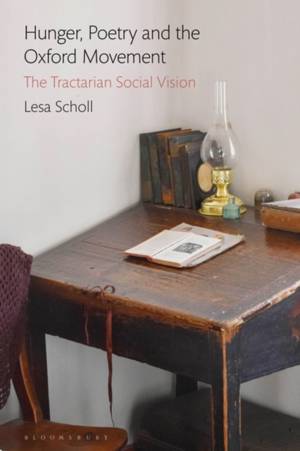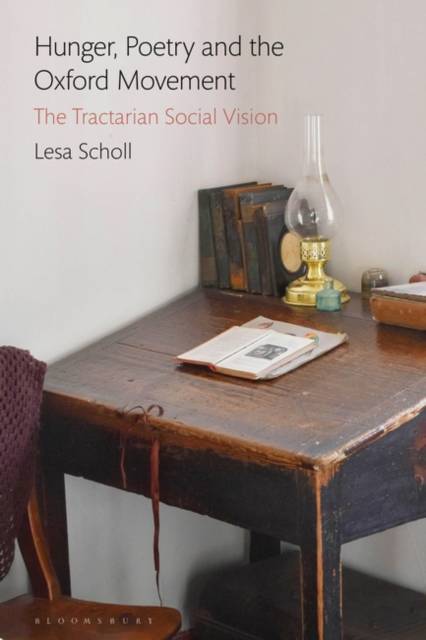
Door een staking bij bpost kan je online bestelling op dit moment iets langer onderweg zijn dan voorzien. Dringend iets nodig? Onze winkels ontvangen jou met open armen!
- Afhalen na 1 uur in een winkel met voorraad
- Gratis thuislevering in België vanaf € 30
- Ruim aanbod met 7 miljoen producten
Door een staking bij bpost kan je online bestelling op dit moment iets langer onderweg zijn dan voorzien. Dringend iets nodig? Onze winkels ontvangen jou met open armen!
- Afhalen na 1 uur in een winkel met voorraad
- Gratis thuislevering in België vanaf € 30
- Ruim aanbod met 7 miljoen producten
Zoeken
€ 72,95
+ 145 punten
Uitvoering
Omschrijving
Focusing on the influence of the Oxford Movement on key British poets of the nineteenth-century, this book charts their ruminations on the nature of hunger, poverty and economic injustice. Exploring the works of Christina Rossetti, Coventry Patmore, Gerard Manley Hopkins, Adelaide Anne Procter, Alice Meynell and Alfred, Lord Tennyson, Lesa Scholl examines the extent to which these poets - not all of whom were Anglo-Catholics themselves - engaged with the Tractarian social vision when grappling with issues of poverty and economic injustice in and beyond their poetic works. By engaging with economic and cultural history, as well as the sensorial materiality of poetry, Hunger, Poetry and the Oxford Movement challenges the assumption that High-Church politics were essentially conservative and removed from the social crises of the Victorian period.
Specificaties
Betrokkenen
- Auteur(s):
- Uitgeverij:
Inhoud
- Aantal bladzijden:
- 232
- Taal:
- Engels
Eigenschappen
- Productcode (EAN):
- 9781350237414
- Verschijningsdatum:
- 29/07/2021
- Uitvoering:
- Paperback
- Formaat:
- Trade paperback (VS)
- Afmetingen:
- 156 mm x 234 mm
- Gewicht:
- 326 g

Alleen bij Standaard Boekhandel
+ 145 punten op je klantenkaart van Standaard Boekhandel
Beoordelingen
We publiceren alleen reviews die voldoen aan de voorwaarden voor reviews. Bekijk onze voorwaarden voor reviews.











